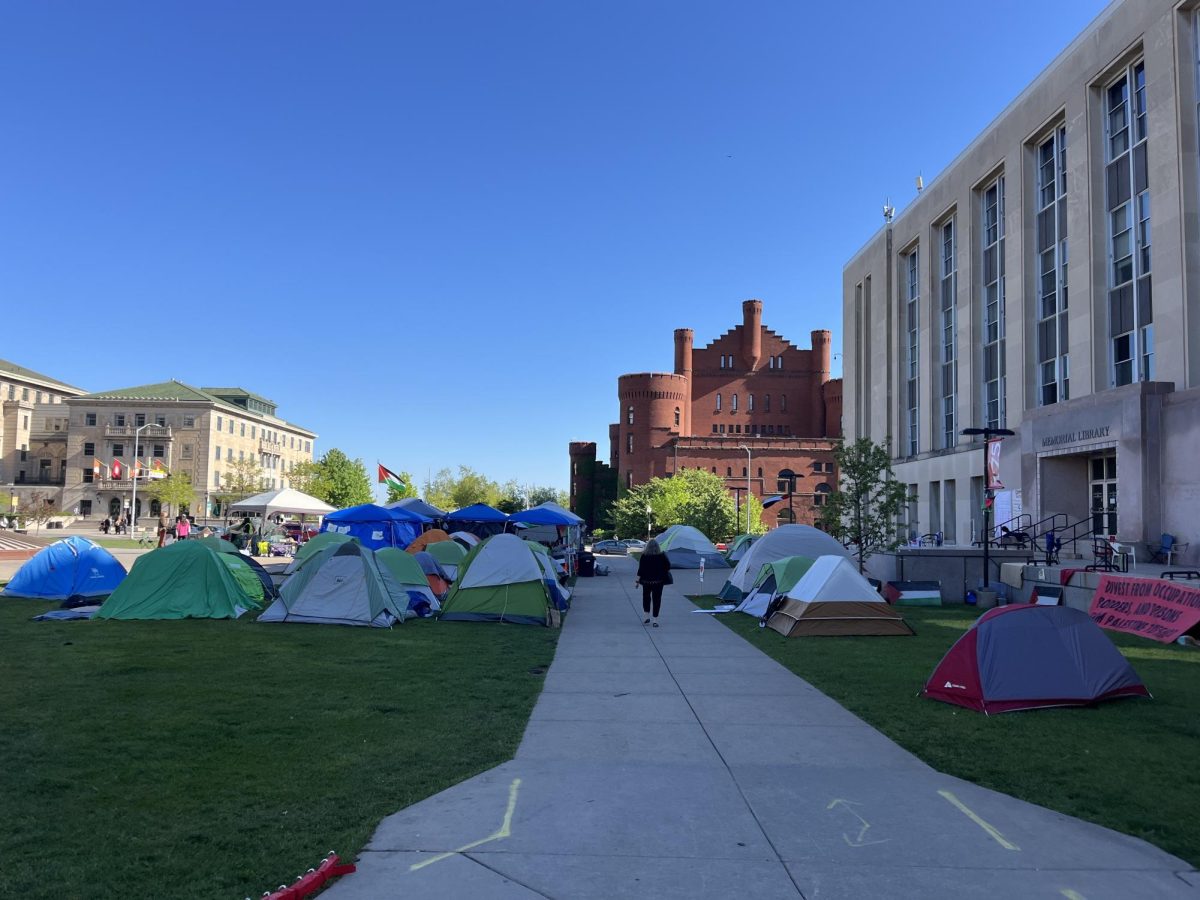Chancellor John Wiley signed off on the University of Wisconsin Roman Catholic Foundation budget, passing the controversial decision of whether to fund the religious student organization on to the Board of Regents.
More than two weeks after questioning whether student segregated fees should fund various religious activities included in UWRCF's proposed $147,000 budget, Wiley said in a letter to Associated Students of Madison representatives, "I am provisionally recommending approval of the UWRCF budget."
"Provisional," however, is the key word.
Continuing to support the university's stance that segregated fees cannot be used to fund "church-related religious activity," Wiley said he decided to fund the foundation's budget because it was not clear what aspects of the organization's budget funded religious activities.
"We're not allowed to use public funds to fund direct religious observation," Wiley said in a phone interview Tuesday. "UWRCF didn't make it crystal clear what was and wasn't being funded in the budget … In the future, their budgets need to be much clearer."
According to UW legal counsel Nancy Lynch, once the university collects segregated fees, the funds become state dollars and are restricted by provisions of the Establishment Clause in the U.S. Constitution, which prohibits state support of religious activities.
"It's still part of the Constitution and still something a state funded institution needs to consider," Lynch said. "That's not a question of interpretation."
However, UWRCF spokesperson Tim Kruse disagreed with the university's stance, arguing segregated fees "are not state tax dollars."
"The laws governing how segregated fees are distributed are completely different from the laws governing tax dollars," Kruse said, citing three Supreme Court cases he said supported the foundation's stance.
"In every case, the court came back and said they are not state dollars, they are segregated fees," Kruse said.
According to Lynch, however, none of the Supreme Court cases "overruled the Establishment Clause."
"There's no case that I am aware of that says the Establishment Clause doesn't exist anymore," Lynch said.
According to UW political science professor Donald Downs, UWRCF might have a "plausible claim," saying the overall issue "conceivably raises an establishment clause problem."
"To some extent, this is uncharted waters and goes way beyond Rosenberger," Downs said, referencing one of the Supreme Court cases addressing segregated fee funding.
However, according to Downs, political problems revolving UWRCF funding outweigh the legal ones.
"You have the largest student group on campus, which does a lot of social service, and it cannot get funded, while other groups, which are considerably smaller, are getting hundreds of thousands of dollars," Downs said. "What's going on?"
Downs added the last thing the university wanted was for the state legislature to get involved and "have them compare" the funding UWRCF received with what other, much smaller groups got.
"It's very large and does a lot of good," Downs said. "Why should it not be funded like other groups?"
In his letter to the ASM representatives, Wiley readdressed many of his other concerns with the original $27 million segregated-fee budget ASM proposed for 2006-07, beyond funding for UWRCF's religious activities.
When Wiley initially returned the budgets to ASM in April, he recommended cutting funding for rent and utilities for six student organizations, including UWRCF, because they were located at off-campus facilities not owned by the university.
In support of his recommendation, Wiley cited a contested Oct. 15, 2004, memorandum from UW legal services that many ASM representatives said they were only made aware of this past year.
ASM responded to Wiley's recommendation by proposing a one-year exemption for all organizations affected by the provision, since both the student-government body and many organizations were unaware of the restriction.
In his letter, Wiley agreed with the one-year exemption and said he would recommend to the regents that the six organizations receive funding for rent and utilities at their off-campus facilities, but only for 2006-07.
However, Wiley emphasized the exemption was for one year only and student organizations should not expect to receive such funding in the future.
Wiley also recommended UWRCF be granted a one-year exemption from the UW System requirement that all groups receiving segregated-fee funding be a registered student organization, which the foundation is not.
Since ASM by-laws contradict the UW System requirement — and have since 2003 — Wiley initially proposed the exemption in his first letter to the ASM representatives.
This is only the second time in ASM's 13-year history that he returned the proposed student segregated-fee budget, and Wiley said "clarification" was essential to avoid similar budgetary controversies in the coming years.
"Student organizations that apply for funding need to submit much more specific budgets and the regents need to clarify some of their rules a little bit," Wiley said.
In regards to what ASM could do help prevent a similar situation in the future, Wiley said, "Any time legal offices give advice to [ASM], they have to follow it."











